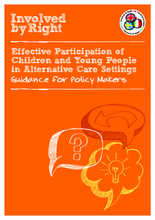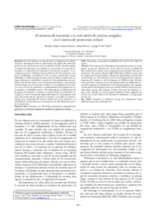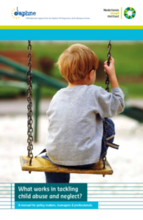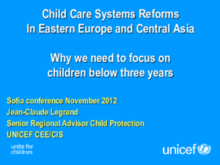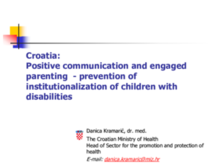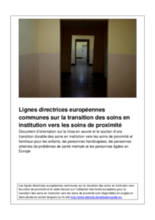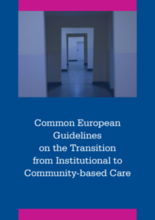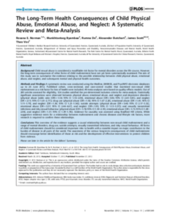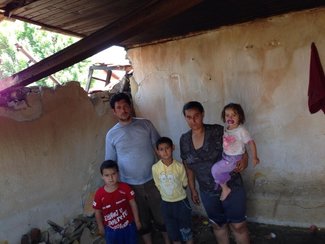

Displaying 461 - 470 of 544
This guidance aims to raise awareness of the importance of children and young people in alternative care settings being able to make, influence and participate in decisions about their own lives, and other matters affecting them.
This is Save the Children's decalogue for child support in emergencies.
En este artículo se revisan diversas investigaciones de carácter nacional de España e internacional sobre los adolescentes que egresan del sistema de protección.
The article reviews the historical development of out-of-home care in Italy and Spain and compares foster family and residential care, as well as the main research contributions to these topics in both countries.
This manual is the main outcome of the European Commission Daphne III programme, Prevent and Combat Child Abuse: What works? Involving regional exchanges and research from five countries (Germany, Hungary, Portugal, Sweden and the Netherlands), this manual brings together knowledge on what works in tackling child abuse. The manual suggests evidence and practice-based prevention and response strategies against child abuse and neglect, including programs and services that have been shown to be successful in strengthening family care.
This presentation to the 2012 Sofia Conference by Jean-Claude Legrand, Senior Regional Advisor Child Protection, UNICEF CEE/CIS, highlights the situation of children in formal care, with particular concern for children with disabilities, and recommends reform and policy initiatives to improve the childcare systems in Eastern Europe and Central Asia.
This presentation to the 2012 Sofia Conference by Danica Kramarić, Head of Sector for the Promotion and Protection of Health, Croatian Ministry of Health, introduces how positive communication and engaged parenting are key deterrants of the placement of children with disabilities in institutions.
Document d’orientation sur la mise en œuvre et le soutien d’une transition durable des soins en institution vers les soins de proximité et familiaux pour les enfants, les personnes handicapées, les personnes atteintes de problèmes de santé mentale et les personnes âgées en Europe.
The Common European Guidelines on the Transition from Institutional to Community-based Care (‘the Guidelines’) provide practical advice about how to make a sustained transition from institutional care to family-based and community-based alternatives for individuals (including children) currently living in institutions and those living in the community, often without adequate support.
Although the relationship between child sexual abuse and mental disorders life has been well established, the health consequences of other forms of child maltreatment, including physical abuse, emotional abuse, and neglect have not been systematically examined. This study summarizes the evidence relating to the possible relationship between child physical abuse, emotional abuse, and neglect, and subsequent mental and physical health outcomes.

